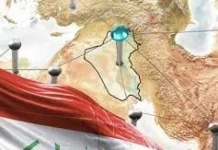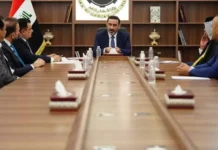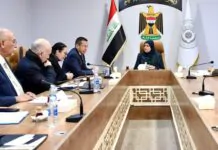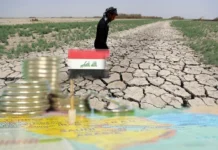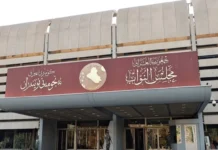Tishwash: International oil companies return to operations in Kurdistan fields
A responsible source in the Kurdistan Regional Government revealed on Saturday that a number of international oil companies have resumed operations in the Kurdistan Region’s oil fields.
The source explained that “the vital oil facilities in the Kurdistan Region were subjected to more than 22 drone attacks in various parts of the region,” noting that “the investigative committee has not yet submitted its final report to Prime Minister Mohammed Shia al-Sudani.”
He added, “The region will bear the responsibility of compensating companies for the quantities allocated for local consumption.”
He continued, “The region is preparing to deliver the ready quantities of crude oil produced by foreign companies that have gradually returned to operating in the region to the State Oil Marketing Organization (SOMO) for export via the Turkish port of Ceyhan, stressing that this step reflects the regional government’s commitment to a joint understanding with the federal government to regulate the export file and protect oil investments.” link
Tishwash: China Petroleum Engineering wins bid for massive offshore pipeline project in Iraq
China Petroleum Engineering Corporation (CPEC), a subsidiary of the China National Petroleum Corporation (CNPC), announced it has won a bid for a major offshore pipeline project in Iraq. The project is expected to be worth approximately $2.5 billion.
This project represents an important step towards strengthening Iraq’s oil export infrastructure, particularly its offshore component, which will contribute to increasing the country’s capacity to pump and export crude oil.
According to economic websites, a Chinese company’s winning of this massive bid confirms the growing role of Chinese companies in the global oil and energy sector, particularly in the Middle East and Iraq.
This major investment reflects China’s commitment to securing and diversifying its energy sources, as Iraq is one of the world’s largest oil producers and a major supplier to China.
The project is expected to contribute to the creation of significant job opportunities, both directly and indirectly, during the construction and operation phases.
This pipeline could also contribute to increasing Iraq’s oil export revenues, which is vital for the country’s economy, which is heavily dependent on oil revenues.
This project is another example of the growing economic cooperation between Iraq and China, which includes many sectors, particularly energy and infrastructure. link
************
Tishwash: Iraqis do not trust banks. More than 90% of the money supply is outside the banking system.
The relationship between Iraqi citizens and banks, both governmental and private, remains isolated or nearly severed, especially when it comes to depositing money with these banks. Citizens view these banks as deep wells that hide their money beneath the routine of lengthy transactions, while they see the rooms and closets of their homes as the safest places for their cash.
Citizen Wajdan Saleh is one of those people. She is afraid to deposit her money in Iraqi banks and prefers to keep it at home, citing her fear that the banks will not easily return her money if she needs it.
“I once deposited 5 million dinars in a government bank, and when I went to withdraw it after a long period of time, they asked me to follow impossible procedures that took more than a week,” Wajdan told Shafaq News Agency.
Wajdan added that since then she has not deposited any money, even the remittances she receives from relatives outside Iraq, which she receives immediately upon arrival.
“The lack of trust between citizens and banks has led to citizens hoarding their money at home and not depositing it in banks, which has significantly impacted the monetary aggregate,” MP Mustafa Al-Karawi asserted. He added, “The issue of developing the banking sector and merging banks has been raised repeatedly in parliament, and the primary reason behind this is the loss of confidence citizens have had in the banking system in Iraq.”
Speaking to Shafaq News, Al-Karawi explained that this problem stems from long-standing issues related to weak electronic and banking accounting systems, which has made citizens reluctant to use them and prefer to withdraw their full salaries as soon as they are deposited into the card, leaving no balance.
He points out that the absence of modern banking systems has led people to refrain from depositing and saving in banks, which prompts many to hoard their money at home, which in turn leads to economic stagnation and reduces the amount of liquidity circulating in the market.
Al-Karawi calls for raising citizens’ awareness and banking culture, as well as for government and commercial institutions and the private sector to adopt e-commerce transactions, as a key path to stimulating economic activity.
He concluded by saying that deposits in banks not only provide financial security for citizens, but also enable banks to provide development services such as loans and advances, which contribute to stimulating the market and achieving the desired economic growth.
Economist Dr. Ali Daadoush told Shafaq News Agency, “The phenomenon of hoarding money amounts to 92% of the monetary mass outside the banking system. It represents a fundamental challenge to the monetary and financial structure in Iraq and is one of the most prominent manifestations of the structural fragility of the monetary economy.” He emphasized that “this phenomenon is complex and has behavioral, institutional, and economic dimensions.”
He adds, “The culture of hoarding is not a new phenomenon. It is an extension of decades of political and economic instability, from blockades to sanctions, from a lack of security to fragile institutions. During these periods, the idea that paper money in your pocket is better than money in the bank became ingrained in the Iraqi mindset. However, this culture did not remain within the framework of individual behavior alone, but rather transformed into a general phenomenon, stifling the economic cycle and weakening the ability of banks to perform their vital functions, from financing to investment, from oversight to the activation of monetary instruments.”
Daadoush points out that “the majority of those who hoard cash are individuals, particularly in small towns, rural areas, and areas not covered by banking services. This is due to a lack of trust in banks, a result of past experiences of bankruptcy, seizure, or corruption, and the absence of a culture of financial inclusion in the educational and media systems.”
Daadoush points to “the difficulty of banking procedures, the lack of widespread branch presence, and the decline in digital banking services, which push people to cling to cash as an easier means of payment.”
According to experts, this phenomenon has many negative aspects, including the central bank losing effective control over the money supply, and its tools, such as interest rates and rediscounting, becoming less effective. Meanwhile, banks suffer from a liquidity crunch, which weakens their ability to finance projects and pushes investors toward informal financing. Furthermore, managing inflation due to the unofficial money supply negatively impacts the central bank’s decisions in achieving its primary objective of controlling the general price level and achieving stability.
Citizen Abdul Ali Alwan told Shafaq News Agency, “The procedures for opening a bank account require official identification documents and an amount not exceeding $100. This is normal, but the problem becomes more complicated if we are asked to withdraw part of the deposited amount.”
He added, “Routine procedures hinder the withdrawal process and take more than a week.”
Due to the instability and the closure of some private banks due to external sanctions, some people refuse to deposit money in these banks.
Contractor Abdul Zahra Fadel explains, “There are often times when there is a quick and urgent need for money, but banking procedures stand in the way. Some private banks are subject to sanctions that require them to shut down for a period of time, and then we face numerous problems.”
He pointed out in an interview with Shafaq News Agency: “When a citizen opens a bank account in hard currency, the money transferred to him through the bank is not disbursed in the same currency,” noting that “the money transfer is also not delivered at the parallel rate under the pretext that the account opened with the bank is in hard currency, and another account must be opened in local currency in order to withdraw the transfer.”
He asserts that “banks in Baghdad adopt complex and often unreasonable procedures that place customers in prolonged suffering. This is completely different from the banks in the region, which enjoy ease and transparency in all their banking transactions.”
Ultimately, the Iraqi government must improve the administrative performance of banks and increase citizen confidence in the banking system by facilitating the procedures for withdrawing and depositing funds. link

